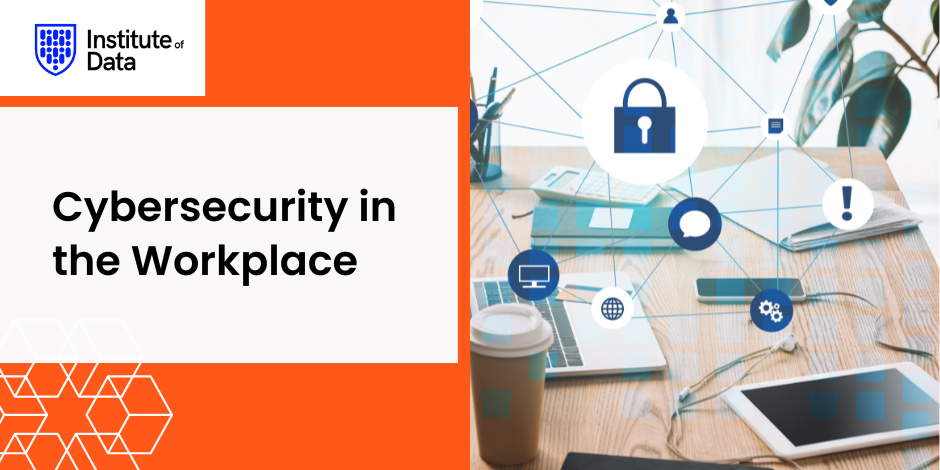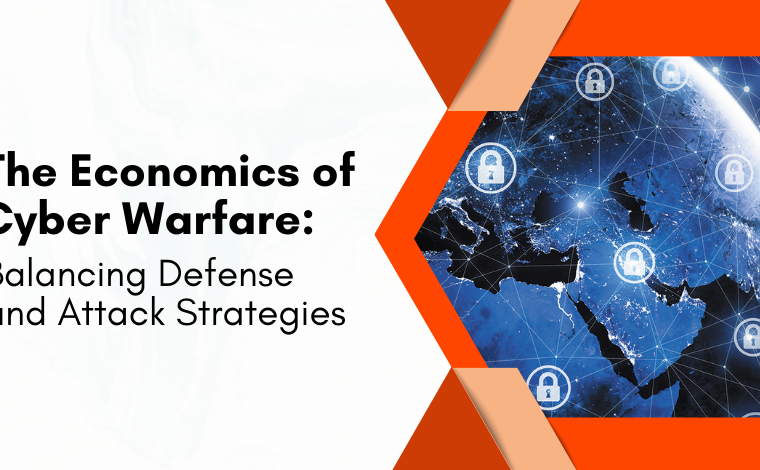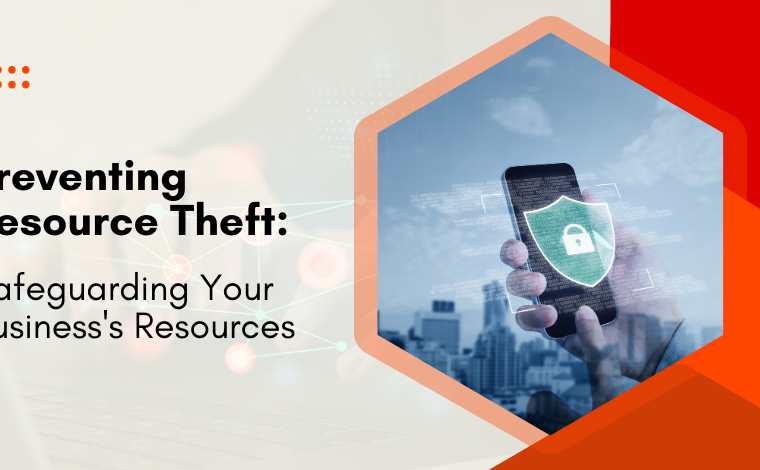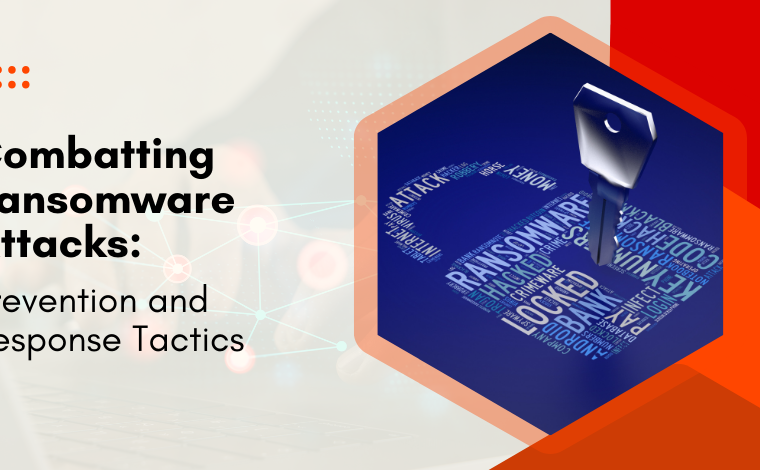The Importance of Cybersecurity in the Workplace

Stay Informed With Our Weekly Newsletter
Receive crucial updates on the ever-evolving landscape of technology and innovation.
Cybersecurity in the workplace is a crucial aspect of modern business operations.
With the increasing reliance on technology and digital platforms, protecting sensitive information from cyber threats has become paramount.
Understanding the role of cybersecurity in the workplace is essential for organizations to safeguard their data and maintain their competitive edge in the digital age.
Understanding the concept of cybersecurity

Cybersecurity in the workplace refers to the set of measures and practices implemented to protect computer systems, networks, and data from unauthorized access, use, disclosure, disruption, modification, or destruction.
It encompasses various technological, procedural, and organizational solutions aimed at mitigating the risks associated with cyber threats.
One significant challenge reported by 31% of executives is the improper identification of key risks, emphasizing the importance of accurately assessing and addressing vulnerabilities within cybersecurity frameworks.
As the digital landscape continues to evolve, the importance of cybersecurity in the workplace cannot be overstated.
With the increasing interconnectedness of devices and systems, the potential vulnerabilities that cyber threats exploit are constantly growing.
Therefore, staying ahead of cyber criminals and malicious actors requires a proactive and multi-faceted approach to safeguarding sensitive information and critical infrastructure.
Defining cybersecurity
Cybersecurity in the workplace involves implementing strategies to prevent cyber attacks, detect potential vulnerabilities, and respond swiftly and effectively to incidents.
It encompasses a wide range of practices, including secure network architecture, regular system updates, employee education and awareness, incident response planning, and effective governance.
Furthermore, the field of cybersecurity is dynamic and ever-changing, with new threats emerging regularly.
This necessitates a continuous cycle of learning and adaptation to stay abreast of the latest trends in cyber attacks and defense mechanisms.
By fostering a culture of vigilance and preparedness, organizations can better protect their assets and maintain operational resilience in the face of evolving cyber risks.
The role of cybersecurity in business
Cybersecurity in the workplace plays a critical role in protecting sensitive data and ensuring the smooth operation of daily activities.
By guarding against unauthorized access and ensuring data confidentiality, integrity, and availability, organizations can maintain the trust of their customers, partners, and stakeholders.
Moreover, the implementation of robust cybersecurity in the workplace can also have a positive impact on a company’s reputation and bottom line.
Data breaches and cyber incidents can lead to financial losses, legal repercussions, and reputational damage.
Therefore, investing in a comprehensive cybersecurity strategy is not just a matter of compliance but also a strategic business imperative in today’s digital age.
The potential threats to cybersecurity in the workplace

Despite the best efforts of organizations to implement robust cybersecurity in the workplace, the ever-evolving threat landscape poses significant risks to their digital infrastructure.
Understanding the common types of cyber threats and their potential impact on businesses is crucial in devising effective defense mechanisms.
Common types of cyber threats
Some common types of cyber threats include malware, phishing attacks, social engineering, ransomware, and distributed denial-of-service (DDoS) attacks.
These threats can result in data breaches, financial losses, reputational damage, and regulatory non-compliance, among other detrimental consequences.
The impact of cyber threats on businesses
The impact of cyber threats on businesses is far-reaching.
From financial losses and operational disruptions to legal liabilities and damage to brand reputation, organizations face significant risks if they fail to address cybersecurity adequately.
Recovering from a cyber attack can be time-consuming, costly, and, in some cases, irreparable.
The benefits of implementing cybersecurity measures
Implementing robust cybersecurity in the workplace offers numerous benefits to businesses.
By prioritizing the protection of sensitive data and ensuring business continuity, organizations can mitigate the risks posed by cyber threats and gain a competitive advantage in the digital landscape.
Protection of sensitive data
One of the primary benefits of cybersecurity measures is the protection of sensitive data.
Customer information, intellectual property, financial records, and other critical data must be safeguarded from unauthorized access or disclosure.
Failure to do so can result in severe consequences, including legal ramifications, loss of business opportunities, and damage to reputation.
Maintaining business continuity
Cyber attacks can disrupt normal business operations, leading to significant financial losses and productivity decline.
By implementing cybersecurity measures such as regular system updates and patches, organizations can minimize the likelihood of successful attacks and ensure the continuity of their critical processes.
This allows businesses to operate smoothly and avoid potential reputational damage.
Key elements of a robust cybersecurity strategy
A robust cybersecurity strategy encompasses various elements that work together to safeguard an organization’s digital infrastructure.
Employee education and awareness, along with regular system updates and patches, are among the key components in mitigating cyber risks.
Employee education and awareness
Employees play a crucial role in maintaining cybersecurity in the workplace.
By providing comprehensive training programs and raising awareness about cyber threats, organizations can empower their workforce to identify and report suspicious activities.
Educating employees on best practices, such as creating strong passwords and recognising phishing attempts, enhances the overall security posture of the organisation.
Upskill your team by investing in cybersecurity training and education at the Institute of Data.
Regular system updates and patches
Regular system updates and patches are vital for addressing software vulnerabilities that can be exploited by cyber attackers.
By promptly installing updates and patches, organizations can close potential entry points for malicious actors and ensure that their systems have the latest security enhancements.
Additionally, implementing robust endpoint protection solutions, such as firewalls and antivirus software, further strengthens an organization’s cybersecurity defenses.
The role of leadership in promoting cybersecurity

Leadership within an organization plays a pivotal role in promoting cybersecurity awareness and fostering a culture of cyber resilience.
By setting the tone from the top, organizations can create an environment where cybersecurity is seen as a shared responsibility and an integral part of everyday operations.
Setting a cybersecurity culture
Leaders should prioritize cybersecurity and actively advocate for its importance.
By creating a culture that values and prioritizes cybersecurity in the workplace, organizations encourage employees to be vigilant and proactive in identifying and addressing potential cyber risks.
Investing in ongoing training and resources reinforces the message that cybersecurity is a top priority.
Investing in cybersecurity infrastructure
Leaders must allocate resources to invest in robust cybersecurity infrastructure.
This includes implementing advanced security technologies, conducting regular risk assessments, and partnering with reputable third-party vendors.
By allocating funds and promoting innovation in cybersecurity, leaders demonstrate their commitment to protecting the organization’s digital assets and maintaining a strong security posture.
Conclusion
Cybersecurity is of paramount importance in the workplace. Organisations must understand the concept of cybersecurity, identify potential threats, and implement robust measures to protect their digital infrastructure.
By prioritizing employee education, regular system updates, and leadership involvement, businesses can mitigate the risks posed by cyber threats and maintain a secure environment for their operations.
Taking proactive steps to address cybersecurity not only safeguards sensitive data but also ensures business continuity and builds trust with customers and stakeholders.
To improve your knowledge and skill set in the realm of cybersecurity, consider exploring the Institute of Data’s specialized Cybersecurity program.
Alternatively, book a free career consultation with a member of our team to discuss the program further.




